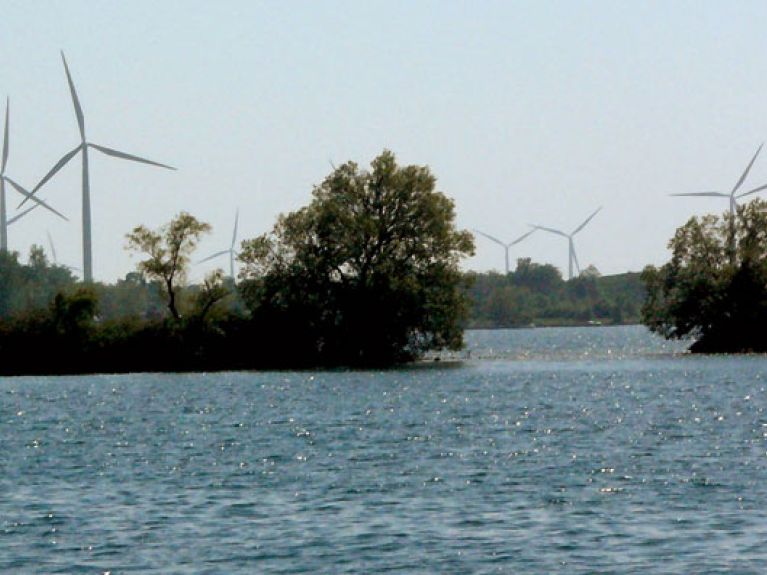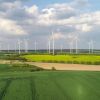Great potential
Renewable energy plays a major role in German-Canadian cooperation.

Word that Germany is undergoing an “energy transition” has also reached Canada. Though the oil industry plays a prominent role in Canada, a look at the country’s different provinces and municipalities reveals a more nuanced picture. Some provinces receive nearly all of their electricity from renewable energy sources, in particular from hydroelectric power, and have increased the share of electricity generation from solar and wind power.
This opens up cooperation and investment opportunities for German companies. In addition, a spirit of innovation pervades many Canadian businesses. “There is great potential for investment and cooperation,” says Alexandra Bogensperger of the Canadian German Chamber of Industry and Commerce. “This is a very exciting domain.” Bogensperger is Acting Managing Director of the Toronto-based chamber’s Regional Office in Montreal. For the past ten years, this office has made renewable energy one of the focuses of its work, resulting in the setting up of a Competence Center Energy & Cleantech. In the wake of the Federal Ministry for Economic Affairs and Energy’s Renewable Energies and Energy Efficiency Export Initiatives, these sectors have acquired greater significance in German-Canadian cooperation. The chamber’s Montreal office offers small and medium-sized German businesses help in gaining access to the Canadian market in this sector.
A national energy policy has so far been lacking in Canada, and there has been little talk of energy transition in public debate. In some provinces, that’s not surprising: for decades now, British Columbia, Manitoba and Québec have generated more than 90% of their electricity from hydroelectric power. In Ontario, a Green Energy Act entered into force in 2009, with a feed-in tariff modelled on the provisions of Germany’s Renewable Energy Sources Act (EEG). After an initial boom, development of this sector has slowed down – which market observers attribute in part to protracted licensing procedures.
But wind power is an important factor, not only in Ontario. German companies such as Enercon and Siemens have played a major role in developing wind-powered electricity generation in Canada. According to the Canadian government, this has put the country among the world’s top ten users of wind energy in just five years. Siemens is also involved in Canadian investment in smart grid technology – for example, through major projects in Ontario and New Brunswick. But there are also investments in the other direction: the Montreal company 5N Plus manufactures components for the solar industry in Eisenhüttenstadt.
In electricity storage technology, both sides have something to offer: Hydrogenics, a company based in Mississauga near Toronto, manufactures hydrogen and fuel cell products and supplies energy markets. The Canadians have set up a German subsidiary, Hydrogenics GmbH, in Gladbeck. Another venture that has caused quite a stir is Vancouver-based Ballard’s partnering with Daimler in Stuttgart to develop and manufacture automotive fuel cells. ▪
Gerd Braune

